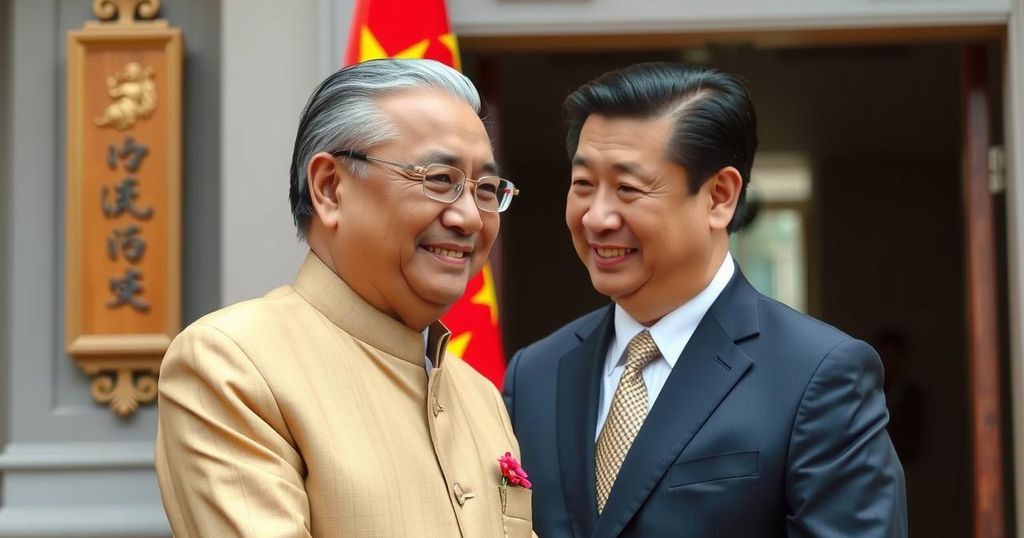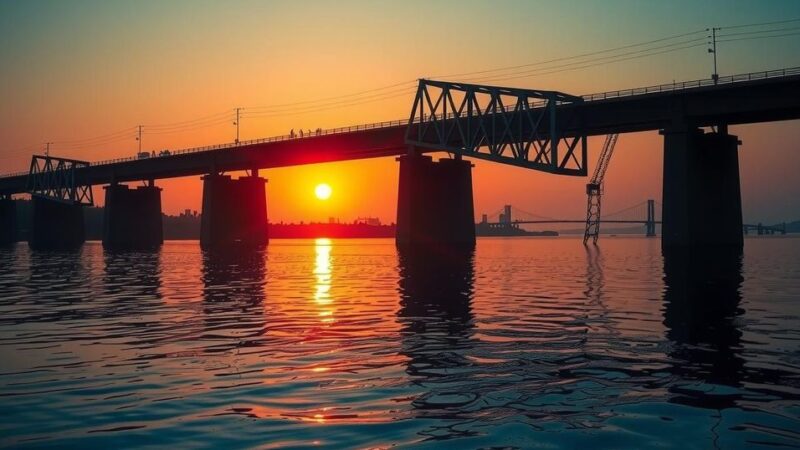President Anura Kumara Dissanayake will visit China in January for discussions following a successful debt restructuring. China, a key lender, holds a significant portion of Sri Lanka’s debt, which contributed to the 2022 financial crisis. The economy is recovering with IMF support and austerity reforms, although challenges remain.
Sri Lankan President Anura Kumara Dissanayake has announced plans to visit China, the country’s largest bilateral lender, for discussions in January. This announcement follows the completion of a much-anticipated foreign debt restructuring process. Historically, China has held a significant portion of Sri Lanka’s bilateral debt, contributing to the financial crisis that emerged in 2022 when the nation faced severe shortages in foreign currency, hindering its ability to import essential goods such as food and fuel.
The Sri Lankan economy has shown signs of recovery, aided by a rescue package from the International Monetary Fund (IMF) and the implementation of austerity measures aimed at stabilizing government finances. Dissanayake, who assumed office in September, has prioritized combating corruption and strengthening his political position following significant electoral successes. He previously visited India for his inaugural overseas engagement, where he was warmly welcomed by Prime Minister Narendra Modi. This reflects the ongoing geopolitical competition in the Indian Ocean region between India and China, particularly given Sri Lanka’s strategic maritime location along key shipping routes.
Additionally, Fitch Ratings recently upgraded Sri Lanka’s long-term foreign currency issuer default rating to CCC+, crediting the debt restructuring for alleviating the government’s financial burdens. However, they cautioned that the ratios of government debt to GDP and interest to revenue are anticipated to remain elevated in the near future.
In recent years, Sri Lanka has faced significant economic challenges, culminating in a severe crisis in 2022 when the country struggled to meet its foreign exchange obligations. China emerged as a crucial lender during Sri Lanka’s financial strife, holding over half of the nation’s bilateral debt. The country’s economic recovery has been supported by international financial assistance and the implementation of measures to restore fiscal health. The geopolitical dynamics in the region, particularly the rivalry between India and China, further complicate Sri Lanka’s diplomatic and financial engagements. As Dissanayake prepares for his discussions with Chinese officials, the context of Sri Lanka’s financial situation and its relationship with both China and India remains pivotal. The strategic importance of Sri Lanka, situated at a vital maritime crossroads, heightens the stakes for all parties involved in its economic recovery and political future.
In summary, President Anura Kumara Dissanayake’s impending visit to China underscores the significance of bilateral relations in the context of Sri Lanka’s economic recovery and debt management. The collaboration with China is critical given its substantial influence as a key lender. Furthermore, the strategic implications of this visit should be noted amid India’s ongoing geopolitical interests in the region. Despite Fitch Ratings’ optimistic outlook regarding the restructuring effects, the high levels of debt suggest ongoing economic challenges ahead for Sri Lanka.
Original Source: www.barrons.com







